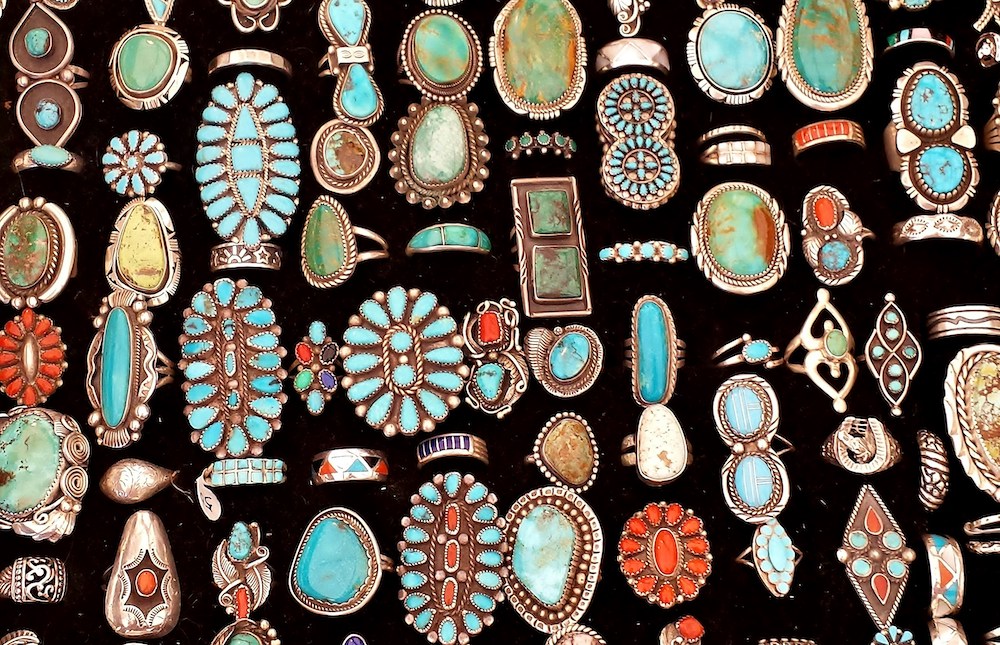
- Details
- By Native News Online Staff
A Florida man faces criminal charges for allegedly attempting to sell jewelry he fraudulently claimed was Native American made, according to a recently unsealed indictment released by the U.S. Attorney's Office for the Western District of Wisconsin.
The indictment alleges that from December 2015, to January 2024, 45-year-old Jose Farinango Muenala of Casselberry, Florida, “devised a scheme to defraud” when he applied to art shows across the United States in order to sell jewelry in violation of the 1990 Indian Arts and Crafts Act. IACA, as it is called in shorthand, is a truth-in-advertising law that prohibits misrepresentation in the marketing of Indian art and craft products within the United States.
In Muenala’s art show applications, the indictment says, and to attendees of art shows, Muenala “falsely represented that he was Native American and made the jewelry he displayed for sale," when, “in fact, Farinango Muenala was not Native American nor a member of an Indian tribe.”
Muenala is also being charged with wire fraud and mail fraud for allegedly false statements he made via email to the Mercer Chamber of Commerce, and via mail to the same party.
The indictment was unsealed yesterday, June 19, after agents served Muenala with the indictment and a summons ordering him to appear for an initial appearance in the Western District of Wisconsin on July 30, 2024, according to the U.S. Attorney’s Office.
Timothy M. O’Shea, United States Attorney for the Western District of Wisconsin, said in a statement that prosecuting fraudulent cases is part of his office’s work to support tribal nations.
“The indictment announced today is not only about enforcing the law, but also about protecting and preserving the cultural heritage of Native Americans,” O’Shea said.
Edward Grace, the Assistant Director of the U.S. Fish and Wildlife Service Office of Law Enforcement, who worked on investigating the case, said that Muenala’s claims cheated customers, and also impacted the cultural livelihood of Native American artists.
“Our dedicated team of special agents works on behalf of the Department of the Interior and the Indian Arts and Crafts Board to protect Native American and Alaska Native artists,” Grace said in a statement. “Safeguarding Native American culture, traditions, and the consumers who purchase authentic Native American art are a critical part of these investigations.”
If convicted, Farinango Muenala faces a maximum penalty of 20 years in prison on the wire and mail fraud charges. He faces a maximum penalty of 5 years in prison on the misrepresentation of Indian produced goods charge.
More Stories Like This
NCAI Passes Two Emergency Resolutions on Immigration Enforcement ActivitiesChickasaw Lighthorse Police Officer named Indian Country Law Enforcement Officer of the Year
Indian Gaming Association Rallies Broad Coalition Against Sports Event Contracts It Calls Illegal Threat to Tribal Sovereignty
Navajo Resources and Development Committee Issues Notice on Livestock Inspection Requirements
American Prairie, Tribal Coalition Files Protest Over Rescinded Grazing Rights
Help us defend tribal sovereignty.
At Native News Online, our mission is rooted in telling the stories that strengthen sovereignty and uplift Indigenous voices — not just at year’s end, but every single day.
Because of your generosity last year, we were able to keep our reporters on the ground in tribal communities, at national gatherings and in the halls of Congress — covering the issues that matter most to Indian Country: sovereignty, culture, education, health and economic opportunity.
That support sustained us through a tough year in 2025. Now, as we look to the year ahead, we need your help right now to ensure warrior journalism remains strong — reporting that defends tribal sovereignty, amplifies Native truth, and holds power accountable.
 The stakes couldn't be higher. Your support keeps Native voices heard, Native stories told and Native sovereignty defended.
The stakes couldn't be higher. Your support keeps Native voices heard, Native stories told and Native sovereignty defended.
Stand with Warrior Journalism today.
Levi Rickert (Potawatomi), Editor & Publisher


